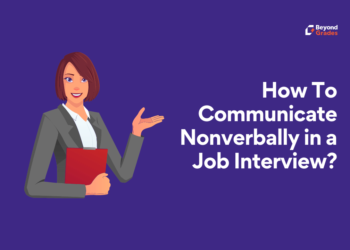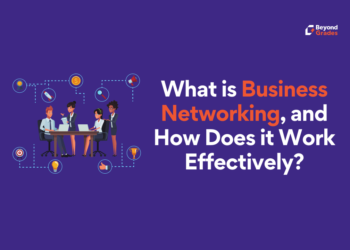[ad_1]
Imagine sitting in front of recruiters with low self-esteem, an inability to communicate, and confusing body language. Well! That’s no less than a nightmare for every candidate seeking a bright future. But don’t worry! That can be fixed. But how? Get acquainted with the top soft skills employers value.
Soft skills can be the decisive factor when you’re applying for a job among a healthy number of candidates. Obviously, it’s not going to be a direct question, but highly mandatory to showcase them and make the decision-making easier for your recruiters.
Workplace soft skills are most valued by employers, and there are strong reasons supporting the fact. Before I dig deeper into the context, let me introduce you to the core concept of soft skills.
Soft Skills – What Are They?
Soft skills – common skills or core skills – characterize how we fit in a workplace. They complement hard skills and decide how we build relationships with peers. There is no involvement of technicalities but how you manage your work, respond to situations, and resolve your issues.
Let’s take an example to have a better understanding of the concept — A digital marketer has all the core abilities to analyze the data and perform search engine optimization techniques; these skills are categorized as hard ones, while the way they deal with clients, manage their tasks, and communicate with colleagues, or train their fellow, and whatnot, comes under the category of soft skills.
Your attributes and personality traits reflect your core values and work ethics adding to your professional persona. Well! Soft skills are a little tougher to acquire via training in contrast to hard skills, but you can definitely excel if you keep consistent.
While we are addressing soft skills, it is critical to determine that communication skills are not only soft skills but diversified with a broad range of categories, depending upon the job role. Don’t worry! We are going to talk about that in the next section.
Why Do Employers Value Them The Most?
A striking and rare balance between hard and soft skills in the workplace is highly required when employers look for the most-deserving candidate for any job role. Recruiters make an effort; they can ask direct or indirect questions or give you some hypothetical situations to present your soft skills. They want to hire the right blend of hard and soft skills – a straightforward approach to selecting the right fit for their organization.
But why are they so crucial? I mean, if you see, hiring for soft skills has become more important than ever.
Of course! They seek a candidate who can exceed expectations and put in genuine effort. There may be multiple reasons for hiring managers to look for soft skills. They may want to measure your longevity and commitment to the designation. You know! It explains your work ethic.
Moreover, they may want to check your ability to manage, resolve, or lead at the workplace. Ultimately, they are looking for an asset to add value to their projects. Employers fulfill their goals of finding the right candidate by searching for a curious attitude, who values others’ opinions, builds a robust professional network, and facilitates growth.
Do not underestimate the ability to delegate. It stands out as one of the most sought-after soft skills.
A pro tip: Stay self-sufficient and be ready to learn and accept more at your workplace. This will reflect during your interview.
Top Soft Skills Employers Value With Examples
Advance your career by cracking the in-demand soft skills employers value and seek in every candidature. I have enlisted a few most critical and interpersonal skills that will help you to achieve growth by showcasing accurate attributes. It is said that employees with great soft skills tend to attain higher levels of efficiency at work. Impressive!
Let’s have a look over the top core skills employers seek with examples.
1. Self-awareness
Do you know that self-awareness is considered basic for every other soft skill? This is of experts opinion. Furthermore, you will be highly interested that a sense of self-awareness starts developing at the age of one. It then grows gradually according to how you perceive the different aspects of your individuality. A person is said to be more self-aware if they have a good understanding and ability of one’s self.
You can also understand the concept better with the concept of self-consciousness, keeping in mind that both are not the same. When you recognize your traits, characteristics, and emotions, you can develop the root cause of every possible mental issue and work on overcoming them.
It allows you to cooperate better with the team and take constructive criticism without getting defensive; hence recruiters look for this skill.
It includes
- Self-concept
- Thoughts
- Body
- Feelings
- Emotions
- Self-development
- Receptivity
- Self-confidence
2. Communication
How good are you at conveying your messages to others? It is all about communication and includes different kinds, active and passive. Irrespective of the job role, your abilities to communicate matter. Communication doesn’t only mean conversing; it has many more aspects.
If I delve more, communication means how politely, decently, and clearly you’re able to process your message. Effective communication involves a broad spectrum of abilities, including confidence, eye contact, and how appropriately you demonstrate a vocabulary. Recruiters judge how well you give and receive information, oral or written.
Some of the unavoidable aspects of communication are as follows:
- Public speaking
- Listening
- Negotiation
- Understanding body language
- Persuasion
- Writing skills
- Storytelling
- Nonverbal communication
- Visual communication
3. Leadership
Leadership is a soft skill that allows you to see the big picture. Motivation is essential at work, especially when you have to work in teams. Employees must be enabled to inspire and motivate their teammates whenever necessary. Consideration and incorporation of the teams’ strategies and ideas and resolving the conflicting issues within the team is one of the primary duties of the leader.
Hiring managers need one who can build teams and drive results. They look for the key traits and employers who can deal with the different situations and mindsets notwithstanding their emotional state. So, it’s high time to learn leadership skills and accomplish changes in the corporate world.
Which leadership skills grab the most attention? Here’s the soft skills list
- Mentoring
- Motivating
- Inspiring teammates
- Facilitation
- Managing conflicts
- Deal making
- Managing conflicts
- Decision making
- Reviewing tasks
4. Management
Why is management considered a soft skill? It allows you to manage tasks, teams, and even time. If you can balance your work-life, it is a management skill. Most recruiters are looking for “people-friendly management” skills which are not rare but a little unlikely.
You must be able to guide initiatives, oversee the procedures, and be situationally aware. In fact, it is one of the most commonly-sought soft skills in the workplace during your interviews, especially if you have mentioned “management” in your resumes. And, if you haven’t, they might ask you directly. And, what does good management looks like? You can utilize your and your teammate’s potential up to the threshold without creating pressure.
Some subsets of management are as follows:
- Ethics and integrity
- Efficiency
- Productivity
- Organizational skills
- Active listening
- Flexibility
- Trust
- Patience
- Time management
5. Critical Thinking
The list would be incomplete without mentioning critical thinking skills. Are you able to make informed decisions by grasping the situational complexities? If yes, you’re blessed with critical thinking. If not, you can learn it anytime. Wherever you’re working, the issues will surely arise. It is highly imperative to acknowledge them at first. Yes, it is the first step towards resolving them.
Secondly, how you’re fixing them determines your critical thinking abilities that how critically you can analyze the situation. People having artistic aptitude tend to understand workplace issues better. Moreover, critical observation complements critical thinking.
The other key elements of critical thinking are:
- Problem-solving
- Adaptability
- Researching
- Creativity
- Willings to learn
- Uncertainty tolerance
- Considering alternatives
- Analyzing
Teamwork
Teamwork is not subjected to any particular soft skill but requires a wide range of skills, including collaboration and building effective and worthy professional relationships. As an ideal candidate, you must know your goals and identify everyone’s roles. Enthusiasm is important, along with the shared targets that must be exercised together.
Hiring managers are looking for accurate teammates for their in-house people, from holding brainstorming sessions, being open to suggestions, and being willing to share expertise to accepting each other’s behavior.
Teamwork includes:
- Awareness
- Empathy
- Collaboration
- Team building
- Teamwork
- Customer service
- Networking
- Self-awareness
- Feedback acceptance
- Intercultural competence
How to Highlight Your Skills?
You must mention your skills in your CV and cover letter in order to get noticed by the recruiters. Studies have clearly shown that 94% of employers choose candidates with strong, soft skill sets. From planning to interpersonal communication, mention whatever you possess.
And, try to be most specific with your skillset. For example, if you’re applying for human resource manager, accurately mention specific and relatable common skills, including teamwork, empathy, and communication. Make sure you’re not lying about anything.
Key Notes
- Employers are taking intelligent steps by selecting candidates with key soft skills, and that doesn’t mean hard skills are losing their importance.
- Soft skills are also known as common skills, people skills, or power or core skills.
- You can mention your soft skills to the recruiter during interviews and mention them in the CV and cover letter.
- Make sure to mention honest skills only. Or else you can say, “I am learning and processing the mentioned skills.”
- A common myth floats everywhere that soft skills are non-achievable and acquired by birth. Let it be a myth only.
[ad_2]
Source link










